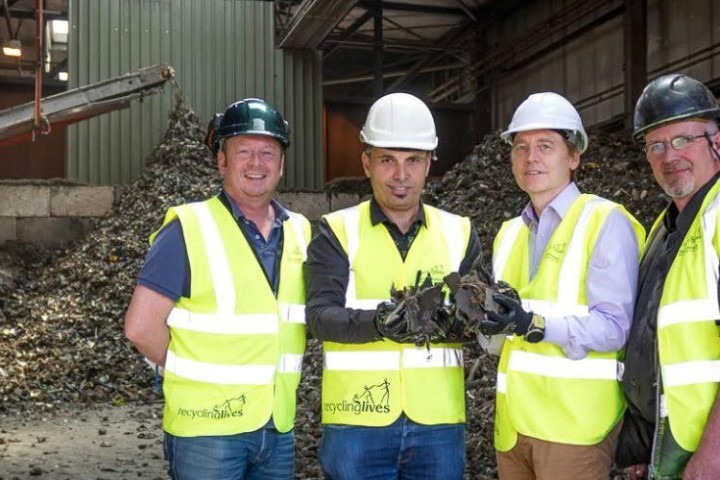As part of a Knowledge Transfer Partnership between Recycling Lives and UCLan, Dr Khodier undertook a two-year study into how auto-shredder residue - the result of shredding, sorting and separating large volumes of waste - could be diverted from landfill.
Recycling Lives has now says the findings could create enough energy to not only power its 15-acre Recycling Park, but also feed back into the National Grid.Dr Khodier has created a process that transforms the residue, comprising foams, rubber, fibres and textiles, into electrical energy, creating a full closed-loop recycling solution on-site and significantly reducing the amount of waste sent to landfill. He also found metals retained in the residue that can be extracted and returned to the market, boosting recycling rates.
Recycling Lives legal director, Paul Finnerty, said: “Dr Khodier’s success marks the beginning of a very exciting time for Recycling Lives – it’s the first step on the road towards our goal of creating an energy neutral site through closed-loop recycling.“Not only will it make our business more self-sufficient and environmentally friendly, it will also contribute to the social value we create from all our operations, helping us to create more jobs and support our charitable activities.” Dr Karl Williams, Director of Centre for Waste and Resource Management at UCLan, said: “Dr Khodier’s enthusiasm and capability has resulted in the delivery of an excellent project that far exceeded what had been planned at the outset.”






















